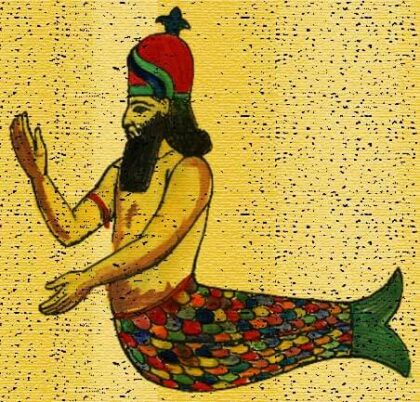Throughout the biblical text, we are presented with a variety of pagan deities worshiped by peoples neighboring Israel. These deities, also called pagan gods, were fundamental in the religious structure of the Canaanite and Mesopotamian peoples, and their study helps us to better understand their religiosity and culture.
In this article, we will explore the pagan deities mentioned in the Bible and how these mythological elements fit into the religious narrative.
Pagan deities mentioned in the bible
Below we list the main pagan deities mentioned throughout the biblical narrative..
Baal
One of the most prominent pagan deities mentioned in the Bible is Baal. Baal was worshiped by various Canaanite and Mesopotamian peoples, such as the Moabites and Phoenicians. He was often associated with fertility, the cultivation of the land and the rain.
Aserah
Aserah was considered the ‘mother goddess’ of fertility and was also worshiped by many neighboring peoples of Israel. It was often represented by a sacred pole or tree.
Dagom
Dagon, or Dagon, was a Phoenician deity much worshiped by Canaanite peoples, like the Philistines, associated with fishing and fertility. He is mentioned in the history of Samson and in the biblical account of the Ark of the Covenant captured by the Philistines.
He was a deity much worshiped by the so-called peoples of the sea, Mesopotamian and some Canaanite peoples.
Learn more in our article about the Worship and the Divinity Dagon.

Moloch
Moloch was a Canaanite deity associated with the sacrifices of children, a practice that involved the burning of living children as an offering on altars. The cult of Molech is highlighted as one of the most horrible things in worshiping pagan gods.
Moloque was worshiped by several BIBLE CHARACTERS, as the king of Judah Manasseh.
Quemosh
Chemosh was one of the Moabite pagan deities and was often worshiped with sacrifices, including human sacrifice.
Learn more
[Vídeo] as were the pagan sacrifices in antiquity. Evidence with Rodrigo Silva.
- Aroer – 10 de October de 2025
- Aijalom of Zebulun – 10 de October de 2025
- Aijalom of Dan – 10 de October de 2025